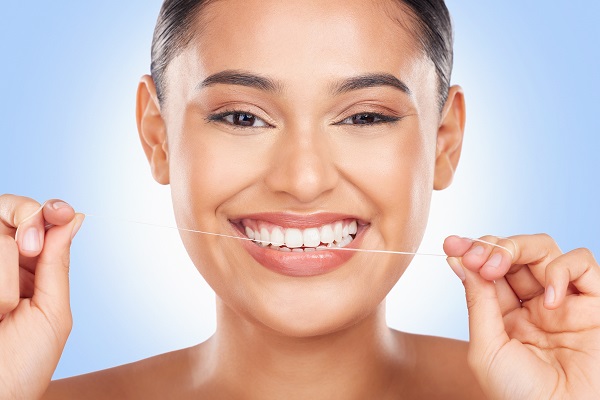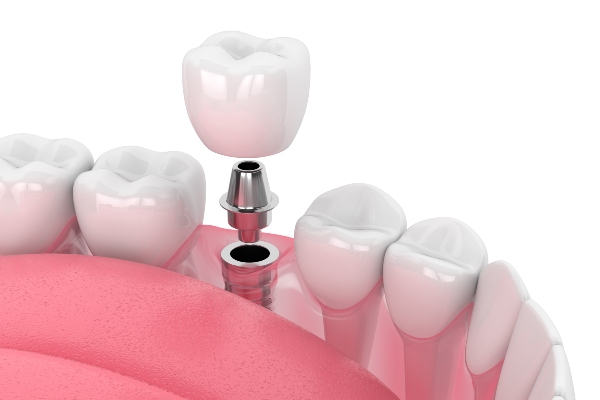How To Ease Sensitivity When Teeth Whitening

A yellowed or dingy smile can be embarrassing for anyone. Fortunately, teeth whitening can help remove years of stains and whiten your teeth several shades. This can help make your smile bright, beautiful, and more youthful.
While teeth whitening is safe for most patients, it can cause some dental sensitivity, especially for those who have already experienced this issue. The discomfort usually subsides on its own within a few days after treatment is complete. Understanding why whitening treatments cause sensitivity and how to manage it can help patients limit this side effect.
Why teeth whitening can cause dental sensitivity
During a professional teeth whitening treatment, a dentist will likely use a type of peroxide gel to remove stains from the teeth. Once this gel is activated, it begins the process of temporarily demineralizing the teeth to penetrate the enamel and target the stains. This demineralization can cause an increase in sensitivity, as it often exposes the microtubules that connect to tooth nerves. Once the treatment is complete, the teeth should remineralize, closing up the microtubules and easing sensitivity.
Another source of discomfort after teeth whitening is gum irritation. While this is rare with professional treatments, it is relatively common when using at-home whitening gels, strips or kits. The ingredients in these products can irritate the soft tissues of the mouth. Unfortunately, it can be difficult to prevent the whitening agents from spreading to the gums when applying at home. Dentists have a variety of useful tools and guards to protect these soft tissues, which is one of the many reasons why professional treatment is often the better choice.
How long sensitivity lasts after a professional whitening treatment varies from patient to patient. For many, the effects wear off within 24 to 48 hours. For others, sensitivity can persist for a few weeks. The important thing to remember is that it should gradually improve, even if it takes some time. If you already struggle with severe or chronic tooth sensitivity, you may want to consult with your dentist about other options to enhance your smile.
Tips for dealing with sensitivity from teeth whitening
There are many ways to deal with sensitive teeth. Both prevention and proper home care after the procedure can make a difference. If these tips do not help and symptoms persist or worsen, be sure to see a dentist for evaluation.
Schedule a professional treatment
An experienced dentist can choose the right type of whitening treatment for your needs while applying it with precision and care. This approach can reduce unnecessary discomfort and sensitivity.
Start preparing in advance
Even if your teeth are not sensitive before treatment, it can be helpful to start brushing with a sensitive toothpaste ahead of time. Two weeks before teeth whitening service should be enough to allow your teeth and gums to adjust to the change and enjoy the full benefits.
Talk with the dentist
Sometimes, the severity of a patient's dental sensitivity depends on the type and strength of the treatment used. Talk with a dentist about your options. If sensitivity is a concern for you, choose the gentlest strength that will still help you achieve the desired results.
Clean with care
You will still need to brush and floss your teeth on a regular basis after having your teeth whitened professionally. Continue to use sensitive toothpaste to help take the edge off and try to use lukewarm water when rinsing. Use a soft-bristled toothbrush and avoid brushing aggressively, especially for the first few days after treatment. A gentle touch at a 45-degree angle can help you clean effectively along the gumline without attacking your enamel.
Avoid troublesome foods and beverages
Certain dietary choices can aggravate symptoms and make tooth sensitivity much worse. Stay away from extremely hot or cold items until the discomfort completely subsides. Highly sweet or acidic foods can also trigger sensitivity. Some of the worst culprits include:
- Ice cream
- Sweet or sour candies
- Juice
- Coffee
- Soda
- Alcohol
- Citrus fruits
Limit these options or avoid them altogether to reduce tooth sensitivity.
Conclusion
Teeth whitening is a great way to boost your confidence and improve the overall look of your smile. By the very nature of its process, it can cause some patients to experience tooth sensitivity for a few days. If symptoms persist, taking proactive measures can help reduce and prevent this type of discomfort for more enjoyable treatment results.
Request an appointment here: https://ericlarsondds.com or call Eric A. Larson DDS at (801) 871-8983 for an appointment in our Salt Lake City office.
Check out what others are saying about our dental services on Yelp: Teeth Whitening in Salt Lake City, UT.
Related Posts
Take-home teeth whitening trays are an alternative to an in-office teeth whitening procedure. Although not as effective as in-office whitening, take-home trays may be ideal for certain patients, particularly those who only have mild teeth stains and are not searching for a long-term solution to a brighter smile.The best way for a patient to determine…
There are many types of dental professionals; however, you will need specialized care when it comes to dental implants. An implant dentist specializes in installing dental implants and treating conditions caused by or affecting them. Here is a list of conditions requiring an implant dentist’s care.Dental implants are a great solution for missing teeth. They…
Patients looking to replace missing or failing teeth may benefit from dental implants, a long-lasting dental restoration that mimics the function and form of real teeth. Depending on the patient's oral health, implant dentists use two types of implants: endosteal and subperiosteal. In this blog, we will closely examine the different types of implants and…
People with tooth loss can smile with confidence again, thanks to the help of an implant dentist. Tooth loss can greatly impact a person's quality of life, affecting how they speak, eat, and feel about their smile. Also, tooth loss can eventually lead to bone loss and changes in facial structure. Fortunately, an implant dentist…


